Key takeaways:
- The gig economy offers flexibility but presents challenges like inconsistent earnings and lack of benefits for workers.
- Current employment laws struggle to adequately protect gig workers, prompting calls for better regulations and protections.
- Gig workers often face financial instability, health risks, and mental health challenges due to the unpredictable nature of their work.
- Recommendations include establishing support systems, implementing portable benefits, and advocating for clear pay structures to enhance gig worker security.
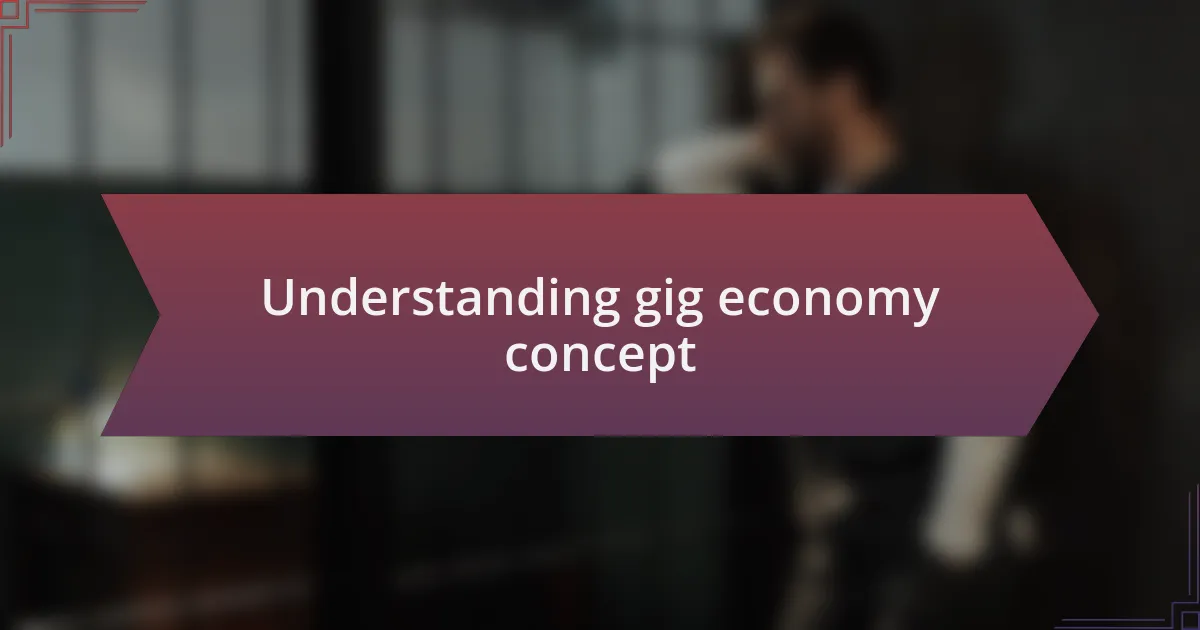
Understanding gig economy concept
The gig economy has rapidly transformed the way many of us think about work. I remember when I first heard the term; it felt so foreign, almost like a buzzword. Yet, as I explored it further, I realized it represents a significant shift in how individuals seek employment and earn income, often prioritizing flexibility over the stability of traditional jobs.
In essence, the gig economy encompasses short-term, flexible jobs often facilitated by digital platforms. This model appeals to those seeking a work-life balance, where you can pick and choose your hours. Can you relate to that need for autonomy in your job? I certainly find it liberating, especially when I have other commitments or simply want to pursue personal interests alongside earning a living.
However, it’s important to recognize that this newfound freedom comes with challenges. Many gig workers navigate inconsistent earnings and lack access to benefits like health insurance or retirement plans. This vulnerability often makes me wonder about the sustainability of gig work in the long term. How do we protect those who embrace this modern work style while ensuring they are not left adrift in an economy that can be anything but steady?
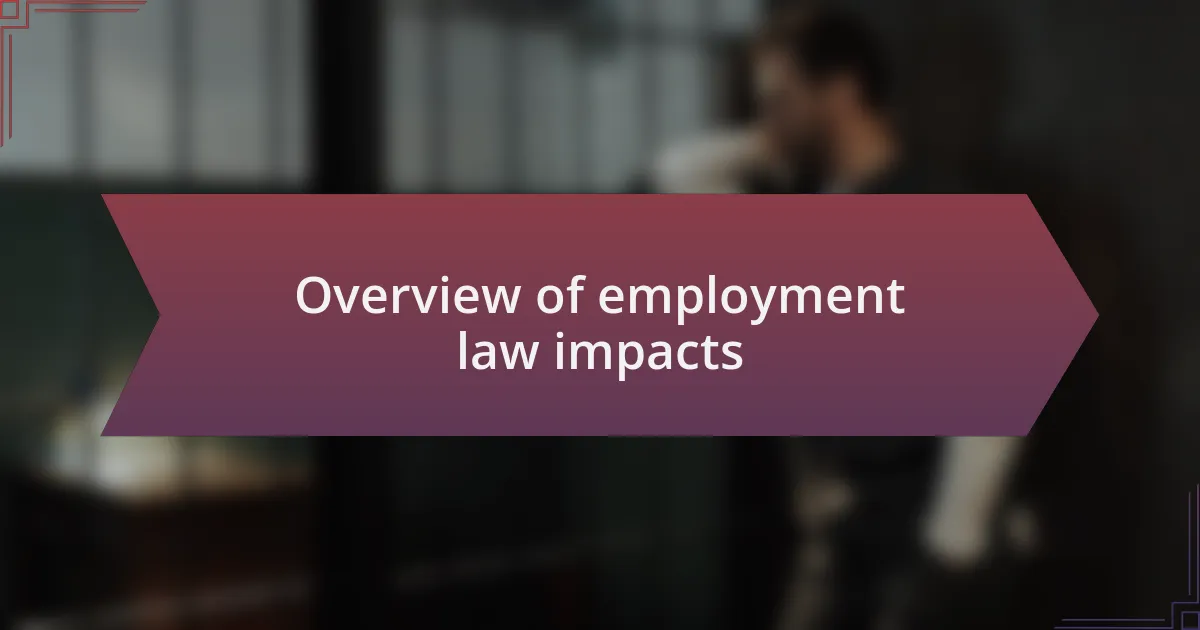
Overview of employment law impacts
The gig economy has prompted substantial shifts in employment law, pushing us to rethink established regulations. I often find myself contemplating how traditional labor laws, designed for full-time workers, seem ill-equipped to address the nuances of gig work. For instance, issues like worker classification, which determines whether someone is an employee or an independent contractor, have become increasingly complex. This complexity affects not just the workers themselves but also the companies that rely on them.
Additionally, the absence of benefits in the gig workforce raises significant legal questions. I remember chatting with a friend who works as a freelance graphic designer; she often juggles multiple clients but must navigate her own healthcare and tax obligations. It strikes me that we need to advocate for more comprehensive protections that take into account the unique challenges gig workers face. Are we doing enough to safeguard their rights while still promoting this flexible work model?
Legislators are increasingly aware of these impacts and are beginning to take action. Recent discussions in government circles about establishing minimum wage guarantees or benefits for gig workers certainly resonate with my experiences. The evolving legal landscape reflects a crucial balancing act between fostering innovation in work arrangements and ensuring adequate protections for individuals embracing this new economy. As we move forward, how will we strike this balance effectively?
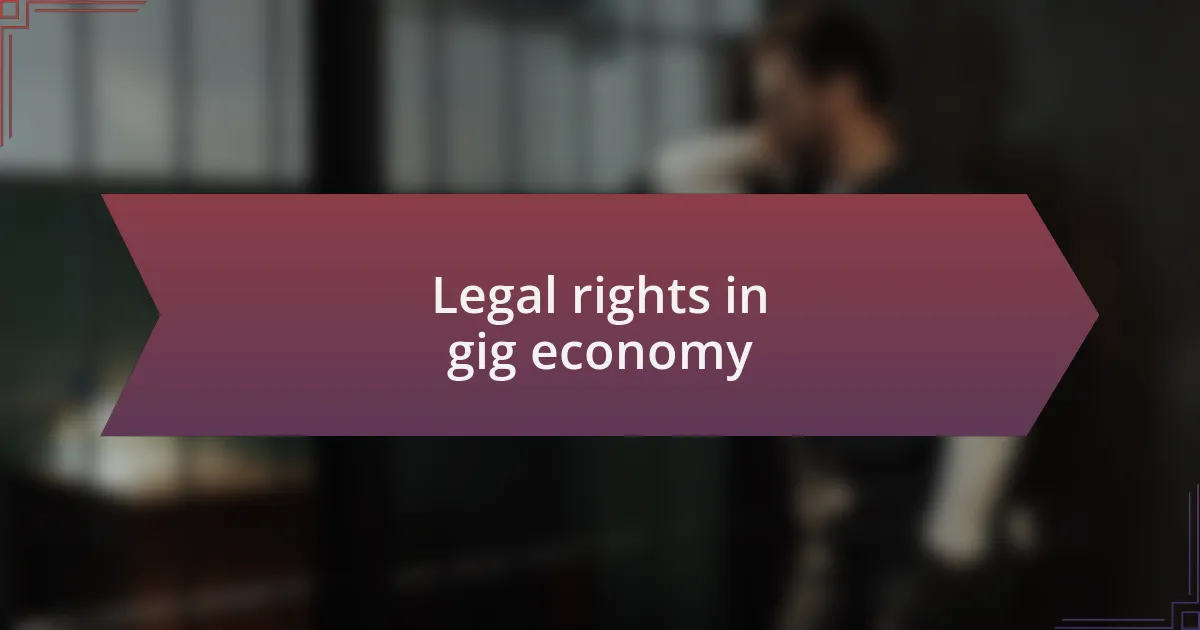
Legal rights in gig economy
Legal rights in the gig economy are a patchwork that varies widely across regions, and this ambiguity often leaves workers vulnerable. I recall a conversation with a fellow freelancer who was stunned when a platform suddenly changed its payment structure, leaving her scrambling. It made me wonder, how can we expect gig workers to advocate for their rights when their very livelihoods depend on ever-changing terms?
Many gig workers find themselves classified as independent contractors, which usually means missing out on essential protections like health insurance and unemployment benefits. I often think about the time a delivery driver I met had to cover his own medical expenses after getting injured on the job. This raises the question: should the gig economy’s flexibility come at the expense of safety and security for those who drive it?
Furthermore, as the gig economy continues to expand, the legal framework surrounding it must catch up. I sometimes feel that without proactive legislation, gig workers might be left to navigate this complex world on their own, struggling to understand their rights. Are we prepared to demand comprehensive policies that offer meaningful protections and address these imbalances?
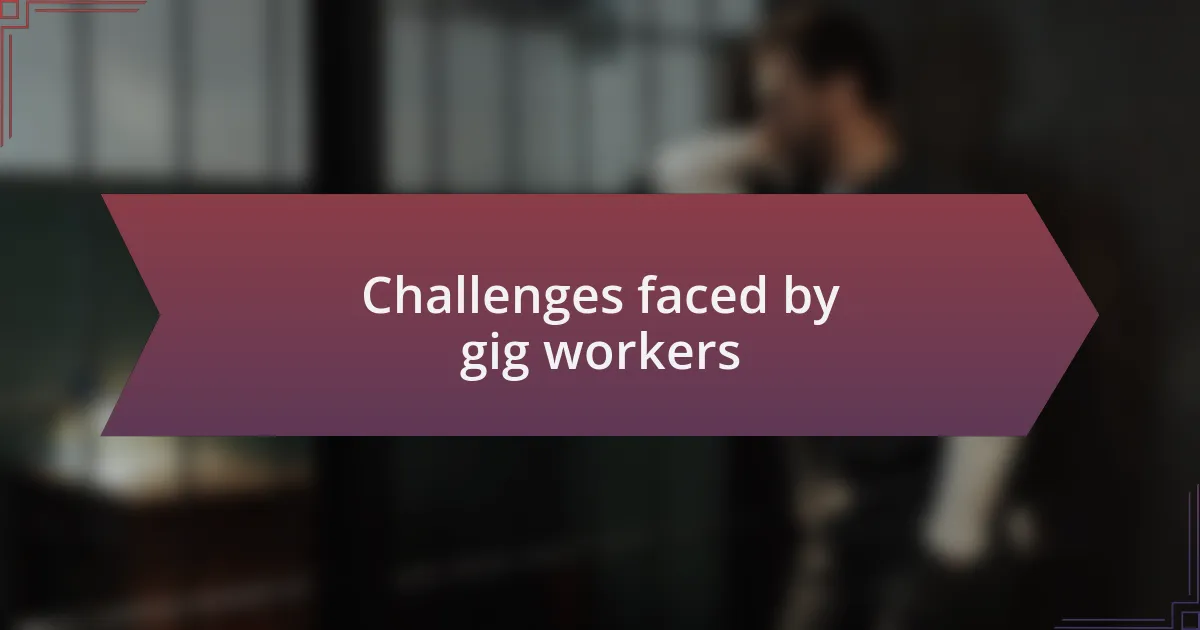
Challenges faced by gig workers
Gig workers regularly face financial instability due to the unpredictable nature of their earnings. I remember chatting with a graphic designer who had months where work was plentiful, only to suddenly hit a dry spell. It struck me how stressful it must be to plan for bills and other expenses when your income can fluctuate so drastically from one week to the next.
Additionally, the lack of benefits is a significant challenge. In my experience, many gig workers find themselves working long hours without sick leave or paid time off. A friend of mine, who relies on ride-sharing apps, shared how he drove himself to illness, fearing the loss of income if he took a day off. It begs the question: how can we expect gig workers to maintain their health and well-being when their livelihood hinges on constant availability?
Mental health is often overlooked in the gig economy, yet it’s a real concern. I recall speaking to a virtual assistant who felt isolated and overwhelmed by the demands of multiple clients, with no support system in place. This raises a vital point: shouldn’t we be addressing the psychological impacts of gig work as part of a broader conversation on worker rights?
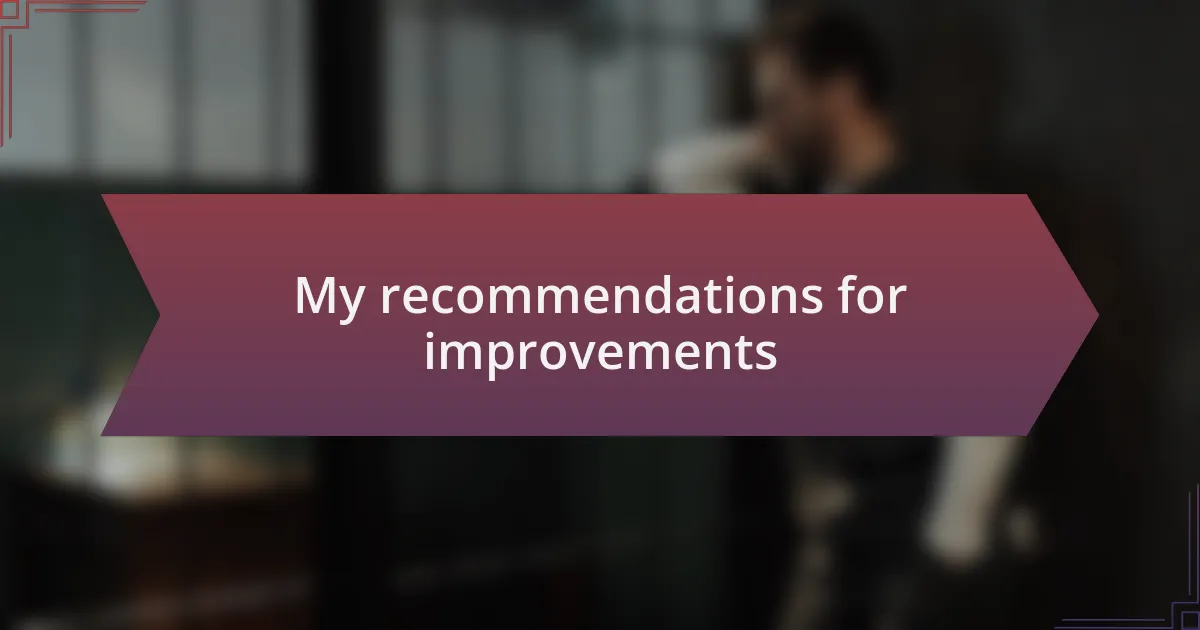
My recommendations for improvements
An essential improvement for the gig economy is establishing a more robust support system for workers. I remember a time when a friend, struggling through a financial drought as a freelance writer, wished for a community resource where gig workers could share leads or advice. It’s crucial to think about how networking and peer support can mitigate isolation and instill a sense of belonging among gig workers. Wouldn’t it be wonderful if we could cultivate a culture of collaboration rather than competition?
Another key recommendation involves the implementation of portable benefits. In my experience with various freelance projects, I often found myself wishing for something akin to traditional employment benefits, like health insurance and retirement plans that I could carry from job to job. This could greatly alleviate the pressure on gig workers. By providing a system where benefits remain with the worker regardless of their contracts, wouldn’t we be promoting a healthier workforce that is truly invested in their work?
Finally, advocating for clear and fair pay structures is crucial. I recall a conversation with a delivery driver who was baffled by how his pay fluctuated without clear explanations from the platform he worked for. Transparent pay practices would not only empower gig workers but also allow them to make informed financial decisions. Isn’t it time we moved towards an economy where earnings are predictable and equitable?